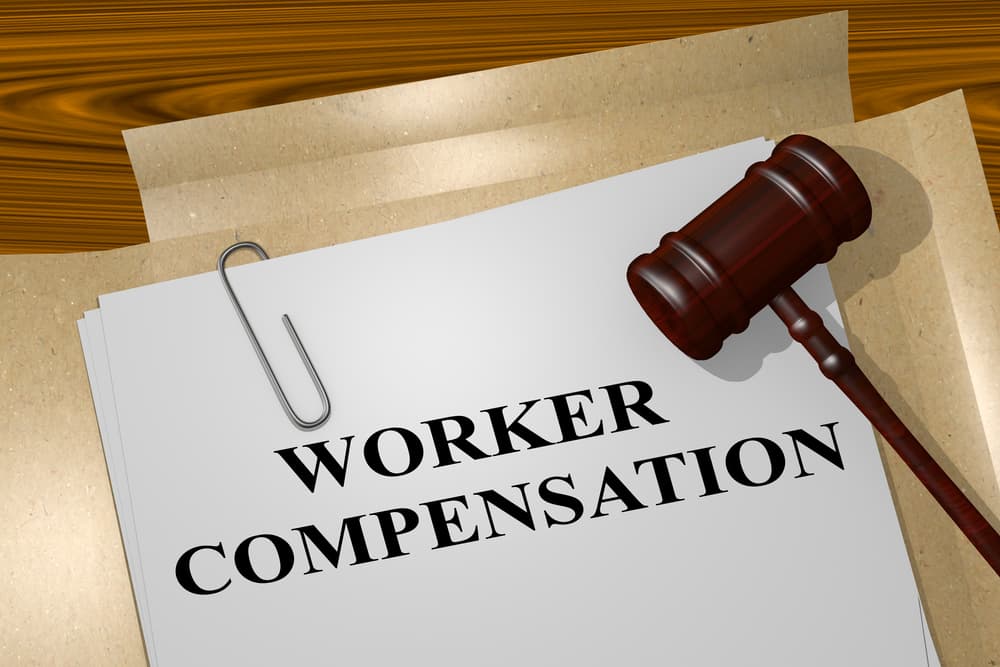
If you have suffered a back injury at work, you may wonder what the average workers' compensation settlement is for such cases. It is important to note that each case is unique, and many factors will determine how much money you receive.
Many injured workers will immediately focus on the compensation they may receive from a work-related back injury because it represents money they will need throughout their careers when they cannot work. Of course, the size of your settlement is important and is one of the main reasons you must file a claim. Before you even discuss a settlement with the workers' compensation insurance company, however, you will need to establish your entitlement to benefits in the first place.
Some workers' compensation claims can be complex and challenging, and you may run into a stubborn insurance company that wants to avoid paying the benefits you deserve. Then, you may need to file a workers' compensation appeal to fight for the payments you need. A workers' compensation lawyer can represent you when dealing with the insurance company. They can also file an appeal on your behalf if the insurance company has denied your claim in the first place. When it comes time to negotiate a workers' compensation settlement for your back injury, your attorney can talk to the insurance company on your behalf.
Work-Related Back Injuries

The physical strain of your job may be enough to cause a back injury that can result in time missed from work. You may find yourself continuously bending over to lift heavy items. Alternatively, you may have to stand on your feet all day long as part of your job. Repetitive motions and physical labor can cause a sudden or debilitating back injury.
More than one million workers suffer back injuries on the job each year. Many of these injured employees must miss time from work, and they need continuous medical treatment for their injuries.
Workers may suffer from the following back injuries:
- Herniated discs: The gel substance that coats the vertebrae and spinal cord can protrude from the disc, causing extreme pain and difficulty walking.
- Sprains and strains: A ligament in the back can become stretched, or a muscle can get injured.
- Spinal stenosis: The spinal canal can narrow, placing pressure on the spinal cord and causing pain in the back.
- Degenerative disc disease: The spinal cord can degenerate over time, causing a person to lose control over their movement and function.
- Broken vertebrae: A fall can cause the worker to break bones in their back. Broken vertebrae can even lead to spinal cord injuries.
No matter what type of back injury you have suffered, the law provides protection when you need medical treatment or cannot work.
When You Qualify for Workers' Compensation Benefits
You have a legal entitlement to workers' compensation benefits when you can show that you have suffered a work-related injury. You will not receive workers' compensation benefits when suffering from a pre-existing condition. However, you are entitled to get paid benefits when you have aggravated a pre-existing back injury through something that happened on the job.
If you have suffered an injury at work, you will submit medical data showing that you cannot fully work as part of your workers' compensation claim.
Workers' Compensation Back Injury Settlements Are Hard to Estimate Without Further Work
It is only possible to give you an actual number that estimates your workers' compensation back injury settlement by knowing more about the facts and circumstances of your situation. Many variables can affect your compensation, and it is hard to say how much you may be due without knowing more about you and your injury. A workers' compensation attorney can give you more information after you have spoken with them during a consultation and they have reviewed your medical records. In the meantime, you should know the factors that may affect how much you can get in a workers' compensation back injury settlement.
What Benefits Can I Get from Workers' Compensation Insurance?

Workers' compensation should pay you for most of the economic expenses associated with your job-related injury. If you successfully file for workers' compensation benefits, you will receive the following:
- Medical expenses: Insurance companies will pay for reasonable medical costs to treat your job-related injury. They will pay for doctor's office visits, surgical procedures, hospital stays, and prescription medications. Your benefits will also cover rehabilitation and medical equipment.
- Lost earnings: You will receive two-thirds of your weekly earnings after you suffer an injury, subject to a statutory cap based on the state's average weekly earnings. You will receive these benefits for a limited amount of time.
- Vocational expenses: If you need to learn a new job after your injury, you may need vocational training, and it can be covered by workers' compensation benefits.
How to Determine My Workers' Compensation
Much depends on the degree of disability that you have experienced because of your back injury. In general, back injuries can be excruciating, and they can take away your ability to do any physical job. Even if you sit at a desk all day, your back injury may subject you to extreme discomfort, and you may still be unable to do your job.
When you have reached the point of maximum medical improvement, you will need to go for a comprehensive examination. Insurance companies will send you to a so-called "independent medical examiner." In reality, this is someone on their payroll and may skew your examination results to provide results that the insurance company wants to see. Although you must attend this medical examination, you should be extremely careful when dealing with this doctor because they may try to use what you say against you to please the insurance company.
The independent medical examiner will give you a disability rating based on what they believe to be the severity of your injury. For example, if you have suffered a severe back injury that completely takes away your physical function, you can receive a 100 percent disability rating. However, the doctor may also give you a lower rating because they know that insurance companies must pay more.
Your disability rating will depend on the amount of benefits you would have been due weekly (two-thirds of your weekly earnings that you were earning, subject to a statutory cap). You have the legal right to draw workers' compensation lost earnings benefits until you retire; the shorthand for that age is 72. Thus, if you have a permanent disability for the rest of your career because of your back injury, you can draw weekly payments if you want.
What if I Disagree with My Disability Rating?
The independent medical examiner may give you less of a disability rating than you think your condition warrants. They may claim that you still have some capacity to work while you feel that your injury is severe enough to be a total disability. In this case, you can get another medical opinion when disagreeing with the independent medical examiner. You can negotiate to receive a higher disability rating when you have evidence that shows that your initial rating was wrong.
You may even file a workers' compensation appeal if you have a credible medical opinion that is at odds with the independent medical examiner. You can present your own medical evidence, including testimony from the doctor who examined you, and people who see you often and are familiar with your limitations. An administrative law judge can then weigh the competing evidence in your case and reach their determination of your disability rating.
The Merits of a Workers' Compensation Back Injury Settlement

Many injured workers want to get their money upfront and enter into a one-time settlement of their workers' compensation claim with the insurance company. You can reach a settlement agreement that pays a lump sum for all of the future benefits you may receive regarding your work-related back injury.
Whether it makes sense to negotiate and accept a settlement is entirely up to you. A workers' compensation lawyer will give you their best professional advice about whether accepting a settlement makes sense. Here, you still need to negotiate a settlement because you will receive a discounted amount of money now for payments that you get in the future, and you can receive interest on the money over time. You may need to negotiate the discounting factor that the insurance company proposes to use. Further, you may also need to negotiate over what they think your future medical costs are.
When you hire a workers' compensation attorney, they can negotiate with the insurance company on your behalf. Insurance companies may propose a lower settlement amount, and you must counter with your own amount before reaching an agreement. Even if you do not get a settlement agreement, you still have the legal right to benefits. Your entitlement to workers' compensation benefits begins when you prove that you have suffered a work-related injury, insurance companies grant your claim, or a judge orders that they pay you. A settlement is agreeing to take a one-time payment instead of getting your benefits incrementally, or when you need medical care.
Other Compensation Outside of a Workers' Compensation Settlement
While workers' compensation benefits are helpful, they only pay you a little, and you only get paid for part of the economic costs associated with your injuries. You will not receive any non-economic damages, such as pain and suffering. If you have suffered a back injury, you may have considerable discomfort for years to come.
You will only receive total compensation if you file and win a personal injury lawsuit and you can prove that someone else was negligent. However, you cannot sue your employer in a negligence-based lawsuit because they are immune under nearly all circumstances. Your attorney may review the facts of your case to determine whether there is a third party who you can sue for negligence, which can result in more compensation. You may still be eligible for workers' compensation benefits even if you do not win your lawsuit.
What You Should Do After You Have Suffered an Injury on the Job
If you have suffered an injury on the job, there are various steps you need to take to put yourself in the best position to receive the workers' compensation benefits you deserve. Specifically, you should do the following:
- Notify your employer of your injury (usually in writing) within a particular time to avoid putting your benefits at risk.
- See a doctor and have them treat your injuries.
- File a claim for workers' compensation benefits to which the insurance company will respond.
- File an appeal of any denial of your workers' compensation claim.
- Hire an experienced workers' compensation attorney to review your claim and advocate for you throughout the process (if you have a complex case, you should consider hiring a workers' compensation lawyer at the outset of your case).
One of the most important things is getting legal help from a workers' compensation lawyer when needed. Never trust workers' compensation insurance companies to do what is right because they have their financial interests at heart. They may treat you differently when they see that you have hired a workers' compensation lawyer because they know an attorney can hold them accountable.
Hiring a Workers' Compensation Attorney Never Costs You Money From Your Own Pocket

Many individuals worry about the cost of hiring an attorney, but the truth is that hiring a workers' compensation attorney never costs you money from your own pocket. Workers' compensation attorneys work on a contingency fee basis, meaning they only get paid if they win your case and recover compensation on your behalf. Their fees are typically a percentage of the benefits or settlement you receive. This arrangement ensures you do not worry about paying legal fees upfront or throughout the process.
Call a Workers’ Compensation Lawyer For Best Results
Hiring a workers' compensation attorney is wise if you have suffered an injury on the job. They understand the legal system and will advocate for your rights and compensation. Do not hesitate to seek legal representation if you find yourself in need of workers' compensation benefits. The peace of mind and potential for a successful outcome make it a worthwhile investment in your future.

